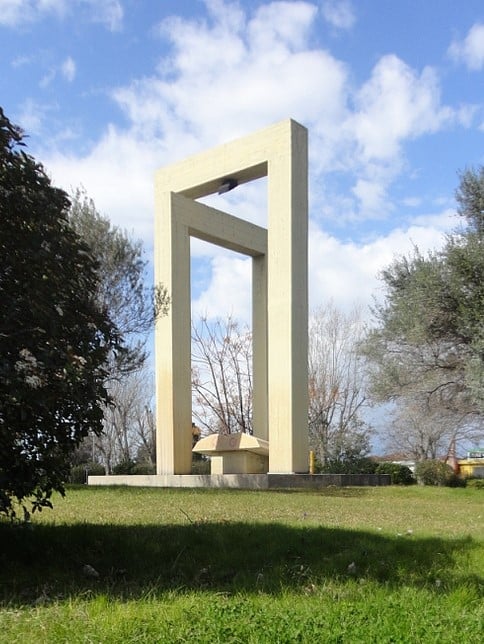Το Εργαστήριο Ηλεκτρικών Κυκλωμάτων και Συστημάτων του Τμήματος Ηλεκτρολόγων Μηχανικών και Τεχνολογίας Υπολογιστών φιλοξενεί τον Καθηγητή Παντελή Γεωργίου από το Imperial College London, Dept of Electrical and Electronic Engineering, Centre for Bio-inspired Technology, ο οποίος την Τετάρτη 25.10.2023 στις 11πμ θα δώσει διάλεξη με θέμα:
“Microchip Technology enabling Rapid Diagnostics for Infectious Diseases – From AMR to COVID-19”
Η διάλεξη, θα είναι στην Αγγλική γλώσσα, θα πραγματοποιηθεί στην Αίθουσα Συνεδριάσεων του Τμήματος Ηλεκτρολόγων Μηχανικών και Τεχνολογίας Υπολογιστών και θα υπάρχει δυνατότητα παρακολούθησης εξ αποστάσεως μέσω του συνδέσμου:
https://upatras-gr.zoom.us/j/97733095454?pwd=UXd4am1qWENxRGRBZGVpRlFaakNwdz09
Καλούνται όλοι όσοι ενδιαφέρονται να την παρακολουθήσουν.
Ακολουθεί η περίληψη της διάλεξης και βιογραφικό σημείωμα του ομιλητή.
Περίληψη
In the last decade, we have seen a convergence of microelectronics into the world of healthcare providing novel solutions for early detection, diagnosis and therapy of disease. This has been made possible due to the emergence of CMOS technology, allowing fabrication of advanced systems with complete integration of sensors, instrumentation and processing, enabling design of miniaturised medical devices which operate with low-power. This has been specifically beneficial for the application areas of DNA based diagnostics and full genome sequencing, where the implementation of chemical sensors known as Ion-Sensitive Field Effect Transistors (ISFETs) directly in CMOS has enabled the design of large-scale arrays of millions of sensors that can conduct in-parallel detection of nucleic acids. Furthermore, the scaling of CMOS with Moore’s law and the integration capability with microfluidics has enabled the creation of hand-held and portable rapid diagnostic systems for infectious diseases.
In this talk, I present how my lab is advancing the areas of DNA and RNA detection for rapid diagnostics of infectious diseases and Antimicrobial Resistance (AMR) through the design of CMOS based Lab-on-Chip systems using ISFETs. I will showcase Lacewing, our latest handheld diagnostic system which is able to rapidly identify bacterial and viral infections in under 30 minutes, communicating results in real-time to the cloud for epidemiological surveillance. Results from our latest trials for detection of Malaria and bacterial resistant infections will be shown in addition to our most recent efforts in tackling the COVID-19 outbreak.
Βιογραφικό σημείωμα
Prof. Pantelis Georgiou received the M.Eng. degree in electrical and electronic engineering and the Ph.D. degree from Imperial College London (ICL), London, U.K., in 2004 and 2008, respectively.
He is currently a Professor of Biomedical Electronics with the Department of Electrical and Electronic Engineering, ICL, where he is also the Head of the Bio- Inspired Metabolic Technology Laboratory, Centre for Bio-Inspired Technology. His research includes bio-inspired circuits and systems, CMOS based Lab-on-Chip technologies, and application of microelectronic technology to create novel medical devices. He has made significant contributions to integrated chemical-sensing systems in CMOS, conducting pioneering work on the development of ISFET sensors, which has enabled applications, such as point-of-care diagnostics and semiconductor genetic sequencing and has also developed the first bio-inspired artificial pancreas for treatment of Type I diabetes using the silicon-beta cell. He received the IET Mike Sergeant Medal of Outstanding Contribution to Engineering in 2013. In 2017, he was also awarded the IEEE Sensors Council Technical Achievement award. He is a member of the IET and serves on the BioCAS and Sensory Systems technical committees of the IEEE CAS Society. He is also on the IEEE Sensors council as a member at large and an IEEE Distinguished Lecturer. He is Co-founder and CEO of ProtonDx, commercialising technologies for rapid diagnostics for infectious diseases.
_____________
ΚΑΘΗΓΗΤΗΣ ΑΘΑΝΑΣΙΟΣ ΣΚΟΔΡΑΣ
ΔΙΕΥΘΥΝΤΗΣ ΕΡΓΑΣΤΗΡΙΟΥ ΗΛΕΚΤΡΙΚΩΝ ΚΥΚΛΩΜΑΤΩΝ ΚΑΙ ΣΥΣΤΗΜΑΤΩΝ

